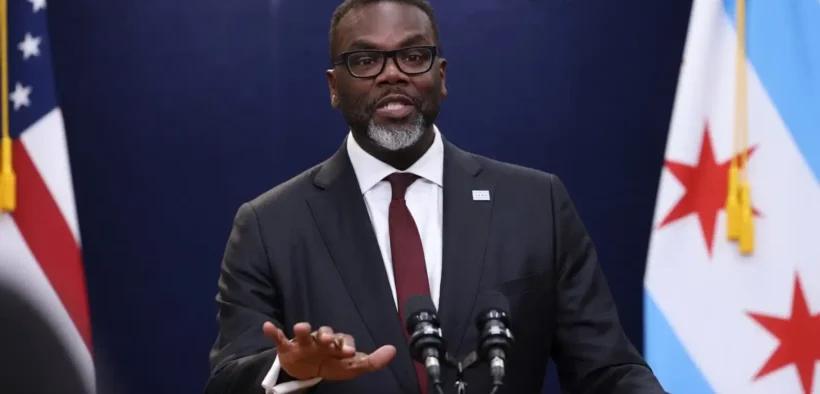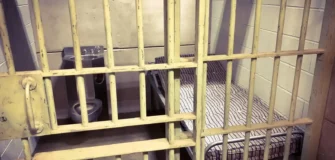Chicago Mayor Brandon Johnson Signs Executive Order to Resist Federal Troops in the City
Share

On August 29, Chicago Mayor Brandon Johnson signed a bold executive order aimed at limiting the presence of federal troops in the city.
Titled the “Protecting Chicago Initiative,” the order seeks to ensure that any federal agents deployed within the city are restricted to specific municipal policing roles, in addition to keeping the public informed of any federal presence and their rights during such operations.
A Stand Against Federal Intervention
The order is a direct response to the federal government’s increasing involvement in cities like Washington, D.C., and the potential for similar actions in Chicago. Mayor Johnson’s executive order will require federal agents to follow the same guidelines as Chicago’s police force, or face legal action.
If agents stray from these protocols, Johnson has made it clear that he will pursue legal measures such as removing their masks, requiring them to wear body cameras, and ensuring they wear identifiable badges and uniforms at all times when interacting with citizens.
Additionally, the Chicago Police Department will withdraw its support for any federal or military units operating in the city.
“I do not take this executive action lightly,” Johnson told reporters. “I would’ve preferred to work more collaboratively to pass legislation, but unfortunately, we do not have the luxury of time. We have received credible reports that we have days, not weeks, before our city sees some kind of militarized activity by the federal government.”
Concerns About Federal Troops
According to sources from The Chicago Sun-Times, Naval Station Great Lakes, located near Chicago’s North Side, is expected to be used as a staging area for federal agents. While it may serve as a command center, the agents themselves will not be housed there. Johnson has been informed that the first federal troops are expected to arrive by September 5.
Despite these developments, legal experts have raised questions about the power of local government to hold federal troops accountable. Julian Davis Mortenson, a constitutional law scholar at the University of Michigan, explained that while Johnson’s executive order is a significant stand for local governance, it may face challenges.
“It insists state and local law enforcement are independent,” Mortenson said, “but I don’t think a state government’s suit seeking to impose municipal law on how federal law enforcement conducts its operations would do very well.”
A Unified Resistance
Johnson’s actions come amid growing tensions surrounding former President Donald Trump’s rhetoric on crime in Chicago, which many critics view as a racially charged move. Despite claims of increasing crime, statistics show a national decline in crime, including in Chicago.
Johnson, alongside Illinois Governor JB Pritzker, has presented a united front against Trump’s attempts to bring federal intervention into the city.
For Johnson, this executive order represents more than a policy stance. “This executive order makes it emphatically clear this president is not going to come in and deputize our police department,” Johnson declared. “We do not want to see tanks in our streets. We do not want families ripped apart. And I don’t take orders from the federal government.”


















